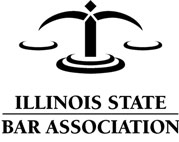





People are harmed on public property every day. Sidewalks that have been improperly maintained, causing someone to slip, trip, or fall and hurt themselves. Traffic lights that have gone out and cause motor vehicle accidents. Similar to premises liability, in some circumstances, a local municipality can be held liable for negligence if someone is injured.
With over 50 years combined experience, the Law Office of Martin L. Glink provides personalized, high quality legal representation to aggressively protect the rights of our clients who are injured under these circumstances.
Under Illinois law, a public employer may be held liable for the negligent, malicious, willful, wanton (reckless) or criminal acts of its employees when those acts are committed in the course and scope of employment. Similarly, if a public employee is immune from suit, the public entity that employs him or her is also immune.
However, the government also enjoys a certain amount of immunity under the Local Government and Governmental Employees’ Tort Immunity Act (745 ILCS 10/1-101 et seq.). Ultimately, whether or not a local government can be held liable for negligence or recklessness, depends heavily on its role in and its knowledge about the given situation. For example, it can be difficult to bring an action against a water municipality because it is usually operating in a government capacity. However, if it owns the property in question, or knows it is producing contaminated water, it could be liable for negligence and/or the negligence of its employees.
In Illinois, a municipality must exercise ordinary care in its ownership of property. An injured victim can successfully bring an action for negligence by arguing that the municipality was responsible for the injury if the injury resulted from the municipality’s ownership and/or management of the property. This can include any dangerous condition that the municipality was aware of and failed to correct as well as any motor vehicles owned and operated by the municipality. Park Districts conducting hazardous recreational activities may be immune from negligence but not from willful and wanton misconduct. This holds true too for 911 dispatchers, and police officers enforcing The Domestic Violence Act, (750 ILCS 60/305) (i.e. orders of protection).
In addition, the Tort Immunity Act does not apply to cases brought under such claims as breach of contract or the Workers’ Compensation Act.
If you have been injured, contact our firm at (847) 394-4900 or online for a free consultation with one of our attorneys. You can also learn more about our firm here. We are here to listen and help.